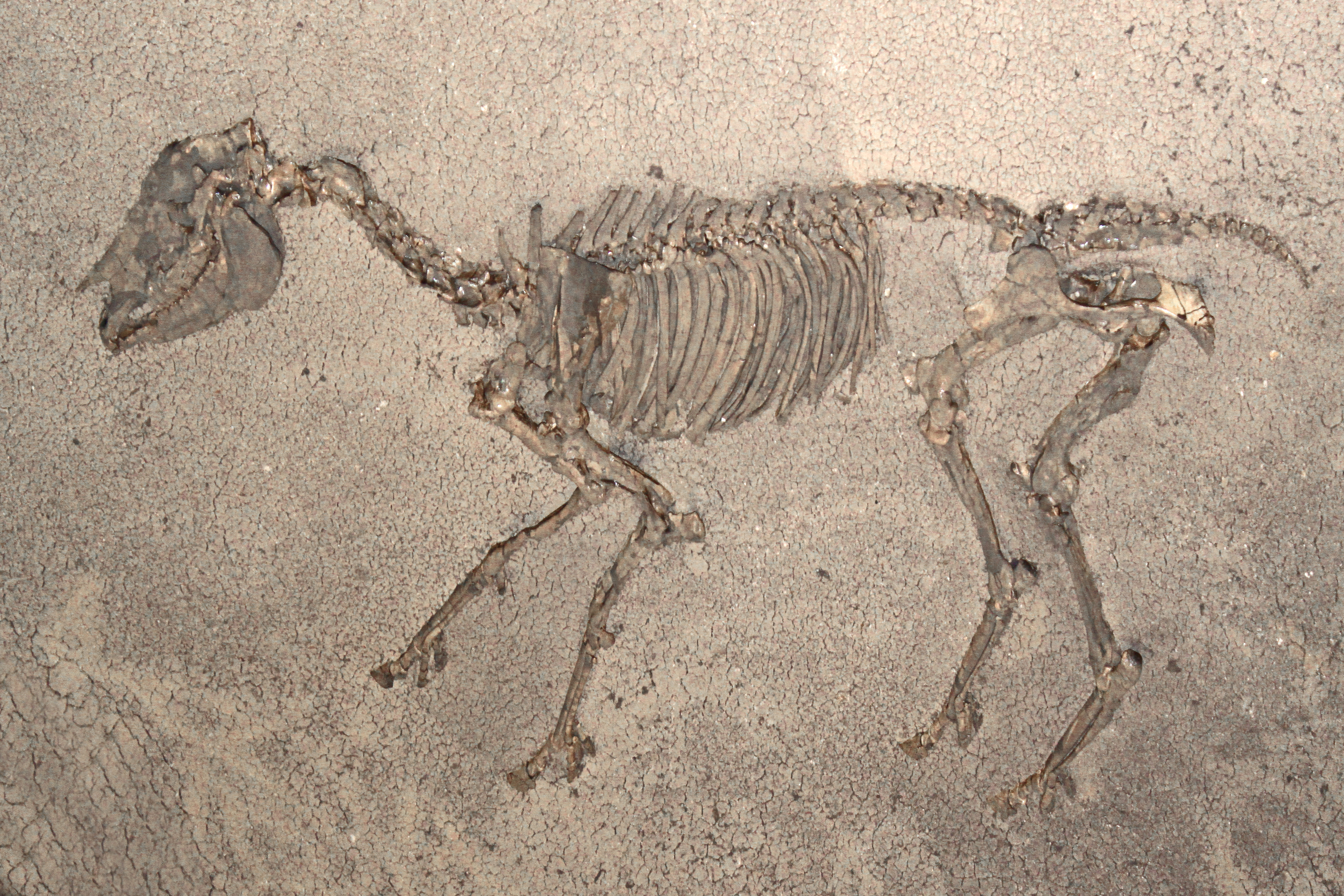Hippotherium on:
[Wikipedia]
[Google]
[Amazon]
''Hippotherium'' is an
extinct
Extinction is the termination of an organism by the death of its Endling, last member. A taxon may become Functional extinction, functionally extinct before the death of its last member if it loses the capacity to Reproduction, reproduce and ...
genus
Genus (; : genera ) is a taxonomic rank above species and below family (taxonomy), family as used in the biological classification of extant taxon, living and fossil organisms as well as Virus classification#ICTV classification, viruses. In bino ...
of horse
The horse (''Equus ferus caballus'') is a domesticated, one-toed, hoofed mammal. It belongs to the taxonomic family Equidae and is one of two extant subspecies of ''Equus ferus''. The horse has evolved over the past 45 to 55 mi ...
that lived during the Miocene
The Miocene ( ) is the first epoch (geology), geological epoch of the Neogene Period and extends from about (Ma). The Miocene was named by Scottish geologist Charles Lyell; the name comes from the Greek words (', "less") and (', "new") and mea ...
through Pliocene
The Pliocene ( ; also Pleiocene) is the epoch (geology), epoch in the geologic time scale that extends from 5.33 to 2.58Mya, existing for .
The last known surviving ''Hippotherium'' was ''H. malpassii'', found in Italy.

 The type species, ''H. primigenium'', is known from Miocene deposits in Europe (e.g., the
The type species, ''H. primigenium'', is known from Miocene deposits in Europe (e.g., the
Species

 The type species, ''H. primigenium'', is known from Miocene deposits in Europe (e.g., the
The type species, ''H. primigenium'', is known from Miocene deposits in Europe (e.g., the Hegau
Hegau () either refers to a region of the Duchy of Swabia or to only that part of said region which is presently located in the country of Germany. It is known for its extinct, partly eroded volcanoes, most of which are crowned with ruins of medi ...
region in southern Germany) and the Middle East, while the species ''H. koenigswaldi'' and ''H. catalaunicum'' have been found in Miocene deposits in Spain. The Asian hipparionin ''"Hipparion" weihoense'' from early Late Miocene deposits in northern China has also been referred to the genus.
Diet
''H. primigenium'' was a generalist feeder which frequently browsed but could also exploitgrasses
Poaceae ( ), also called Gramineae ( ), is a large and nearly ubiquitous family of monocotyledonous flowering plants commonly known as grasses. It includes the cereal grasses, bamboos, the grasses of natural grassland and species cultivated in ...
. The dental mesowear of ''H. primigenium'' reveals that it lived in both open environments such as reed flats and closed environments such as mesophytic forests.
Fossil distribution
*Doue-la-FontaineFrance
France, officially the French Republic, is a country located primarily in Western Europe. Overseas France, Its overseas regions and territories include French Guiana in South America, Saint Pierre and Miquelon in the Atlantic Ocean#North Atlan ...
estimated age: ~13.65—7.25 Mya.
*Lower Bakhtiari Formation, northern Iraq
Iraq, officially the Republic of Iraq, is a country in West Asia. It is bordered by Saudi Arabia to Iraq–Saudi Arabia border, the south, Turkey to Iraq–Turkey border, the north, Iran to Iran–Iraq border, the east, the Persian Gulf and ...
, estimated age: ~11.6—9.0 Mya.
*Kurtchuk-Tchekmedje, Turkey
Turkey, officially the Republic of Türkiye, is a country mainly located in Anatolia in West Asia, with a relatively small part called East Thrace in Southeast Europe. It borders the Black Sea to the north; Georgia (country), Georgia, Armen ...
estimated age: ~11.61—5.33 Mya.
References
{{Taxonbar, from=Q3785745 Miocene horses Neogene mammals of Europe Neogene mammals of Africa Neogene mammals of Asia Miocene Perissodactyla Pliocene horses Pliocene extinctions Prehistoric placental genera Miocene genus first appearances Fossil taxa described in 1832 Hipparionini